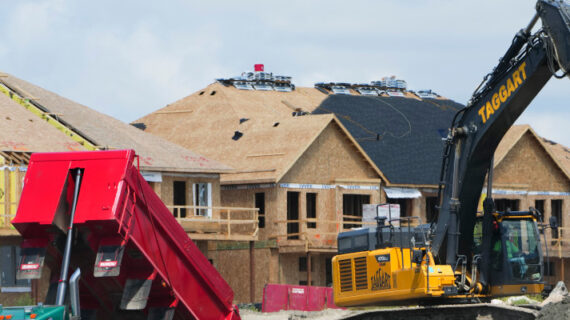After 22 months of suffering through this pandemic, the end appeared to be in sight. The fourth wave was relatively stable with low rates of hospitalization. Canadian vaccination levels are higher than most countries, thus protecting our vulnerable. Booster shots that can restore relatively high immunity against even the Delta variant are finally being rolled out more extensively.
We knew that large numbers of unvaccinated people in other countries might be a breeding ground for new and more dangerous variants of concern. We didn’t appreciate the rapidity with which a highly mutated South African variant, named Omicron by the World Health Organization, could rattle the nerves of countries and economies.
The fear is that the Omicron variant, due to its high number of spike protein mutations, may quickly surpass the Delta variant as the dominant and more contagious strain, as is occurring in South Africa. The even greater concern is whether it will pierce existing vaccination-induced protection as well as render obsolete targeted monoclonal antibody therapy, which was effective for previous strains.
Confirmed worldwide cases of Omicron remain low; however, it is almost certainly present in most countries already. We will soon learn if it is more contagious worldwide by reports of whether it is supplanting the Delta variant as the dominant reported strain. Reports from South Africa have documented high rates of transmission, suggesting that this variant is highly contagious. To date, though, only low rates of hospitalization have occurred. Hopefully, this indicates low virulence rather than reflecting the young age of most of those infected.
We have learned in the past that new major hot spots are often due to a new variant dominating. While this is currently happening in South Africa, it is not yet a worldwide phenomenon. We have seen other new variants dominate in countries such as Brazil, India, and Thailand without dominating worldwide. If Omicron case counts start to rise rapidly simultaneously in many countries, we can infer that Omicron may yet replace Delta as the variant of greatest concern. To date most people infected with Omicron in South Africa have been young and thus less likely to become seriously ill; however, we don’t know the full risk yet. Of concern is breakthrough infection in people who previously were infected with Delta and who were not protected from being reinfected with Omicron.
Right now the dominant strain causing rising rates of infection is clearly still the Delta variant and we have good immunity from serious illness if fully vaccinated and given a booster at the right time. Protection from Delta has to remain our greatest current concern. Evidence to date suggests that antibodies from only two vaccinations may not be as effective as they initially were against the Delta variant. Pfizer has announced that the booster is very likely to further protect against serious disease burden even if not as well as against infection itself. We don’t know how long even this boosted protection will last. There is vaccine fatigue at the thought of possibly needing yet another booster targeted to Omicron next spring.
The key issue is whether Omicron will eventually pierce this immunity earlier and lead to more serious illness and again threaten ICU capacity and restrict conventional care. Some early reports in very small numbers of tests suggest that vaccine induced antibodies are less effective against Omicron, but this needs much greater assessment. If vaccines remain effective against disrupting our health care system, this will still much of the fear of a return to major restrictions. However, only another 4-8 weeks of low rates of hospitalization will confirm our ongoing safety. Some countries such as the U.K. are enforcing stronger mask mandates and expanding the availability of booster shots as a preventive strategy.
There is speculation that the Omicron variant developed in a South African immunocompromised host where it mutated extensively over a long period of infection. It may have picked up elements of a coronavirus flu strain, as well as some small parts of the HIV virus to give it so many mutations. Even if correct, this does not make it a virus that can transmit HIV infection.
Currently, we have to live with the uncertainty about how dangerous this variant truly is. There are important steps to take while we wait to know. It is reasonable to be more cautious in our interactions with those that might spread the virus, especially if we are at higher risk. We need to approve booster shots for everyone beyond six months of their second dose and encourage pediatric vaccination. While Omicron may be more resistant to vaccination (as Delta also was), there will likely still be substantial antibody protection, especially from hospitalization.
We also need to procure new antiviral medication to reduce life-threatening infection in the vulnerable as these drugs are likely to be effective against the Omicron variant. It is disappointing that the Merck oral antiviral drug is less effective than initially advertised when the final data was submitted to the FDA. Hopefully, the Pfizer drug will retain its superiority.
Closing borders to hot-spot countries is politically useful to show concern, but it is too little too late to stop the virus from being here and spreading. At best we can slow its entry. We need to screen better. Airport testing is already enhanced but most border crossing is by vehicle and we need to expand the use of rapid tests at our land border. The use of subsidized rapid tests can also help decrease asymptomatic community spread if Omicron spreads quickly.
We need to have serious concerns about Omicron but not be panicked. We will soon have a true understanding of its risk. We need to aggressively prepare for rising infection so that we can minimize the risk to our freedom and our economy. This means renewed efforts to increase vaccination and the use of boosters, procurement of medicines that mitigate disease severity, better testing and tracking, and rapid deployment of teams to counter hot-spots if necessary. Our mistakes of the past can teach us how to prepare for an uncertain future.




